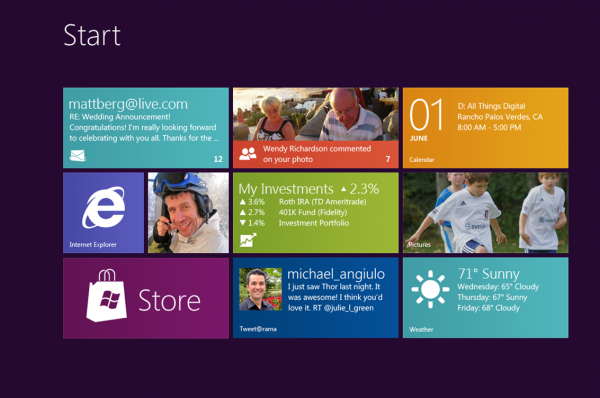
We wish Firefox a happy 8th birthday!
The kids grow up so fast, don't they?
It seems like only yesterday I began using Firefox, but Mozilla has reminded us that today is the eighth birthday of its Firefox browser. Those eight years, while seeming to have flown by, have had their smooth parts as well as their bumpy. The story of the "little browser that could" all began on November 9th 2004.
"The Mozilla Foundation, a non-profit organization dedicated to preserving choice and promoting innovation on the Internet, today announced the worldwide availability of the Mozilla Firefox 1.0 web browser." wrote Mozilla on this day in 2004.

So-called technical glitch robs Firefox of 6M to 9M downloads, Mozilla claims
Almost four months ago the European Commission opened an investigation after Microsoft failed to distribute the browser ballot to Windows users. The problem, according to the Redmond, Wash.-based corporation, only affected 10 percent of PCs, but Mozilla says there's more to it than meets the eye. Microsoft claims a glitch, lasting 18 months, caused the ballot to disappear.
Harvey Anderson, who works at Mozilla on business and legal affairs, revealed some numbers that portray the impact on Mozilla Firefox downloads. Prior to Microsoft fixing the problem daily downloads of the popular open-source browser decreased by 63 percent to 20,000 per day. After Microsoft decided to fix the issue the number of Mozilla Firefox downloads increased by 150 percent to 50,000 per day. The European Commission isn't overly excited by what happened, and sent Redmond a "statement of objections". That usually implies that a fine is underway...

Mozilla's Popcorn Maker beta lets you make 'Pop-up Videos' on the Web
In the late 90's and early 2000's, American music video channel VH1 aired a program called Pop-Up Video, which took existing music videos and augmented them with additional information about the performers, the videos, the music, and so forth. This information "popped" on screen at relevant times with an audible bubble popping noise.
The show turned out to be so popular that it ran for six years, and came back to VH1 nine years later. Right now, it's in its second year as a revival.

Even (some) Mozilla devs don't like Firefox's rapid-release cycle
Mozilla's move to a rapid release process has been controversial. The company basically switched from a "when it is done or necessary" approach to a release cycle that would see a new major version release of the browser every six weeks, regardless of new features, improvements or fixes included in that release.
Mozilla's problem: part of the browser's user base does not welcome the change with open arms, as they feel that rapid release is to interrupting, unnecessary or breaks features or extensions that users grew accustomed to.

Mozilla brings a knife to a gun fight, and Firefox OS can't win
Mozilla is the nonprofit organization that gave the world the first true rival to Microsoft Internet Explorer. Firefox is the second-most used web browser in the world today and because of it the way we surf the Internet has changed dramatically.
Their success was in part based on the lack of competitors. Firefox started gaining share when there was no one else around. Opera didn’t capitalize on this, but Firefox did. Their goal to penetrate the most difficult market has been achieved and it’s their desire to enter the mobile operating system world as well. Is this going to be tougher than the browser market? Considering that they haven’t yet released Firefox OS the answer is a very loud and clear: yes!

Firefox for Android gets a new UI, Flash support
Mozilla on Tuesday announced the latest update (v.14.0) to Firefox for Android is now available in Google Play for devices running Android 2.2 and up. The famous browser, now in its second year on Android, has received a significant feature upgrade this time around, and includes an all new UI and start screen, a sped up experience, and support for Adobe Flash.
Even though Mozilla's mobile Firefox has been in development for more than four years, it is still something of a baby in the Android world. Firefox 4 for Android turned out to be kind of a resource hog, kind of slow, and not entirely stable. The beta of Firefox 5 improved on some of the shortcomings of its predecessor, but clearly needed some work.

Unfair maybe, but Microsoft has the right to bar browsers from Windows RT
Suddenly, the new Microsoft doesn't look all that different from the old one. During court proceedings for the 1998-2001 antitrust trial, government lawyers accused Microsoft of playing favorites by providing its developers access to information not available to third parties -- thus giving Internet Explorer unfair competitive advantage over Netscape. The company's browser policy regarding Windows RT isn't just much the same, it's much more. IE gets hugely exclusive access. The question: Is it anticompetitive?
The answer isn't as simple as some people might think. For example, look at Apple. Is it anticompetitive that the company effectively bars competing browsers from iOS? It's a Safari-only platform, lest browser developers work by proxy, like Opera does. Windows has an acquired monopoly on Intel-based PCs. Apple imposes one in part, by controlling everything on its platform, which is exclusive to its own hardware. Something else to ponder: Microsoft doesn't have a monopoly on ARM as it does on x86. There's no position of market dominance to exert anticompetitive behavior, as could be defined under US antitrust law. Microsoft is within its rights to shut out Chrome, Firefox and other browsers while favoring Internet Explorer. But that doesn't make it right.
